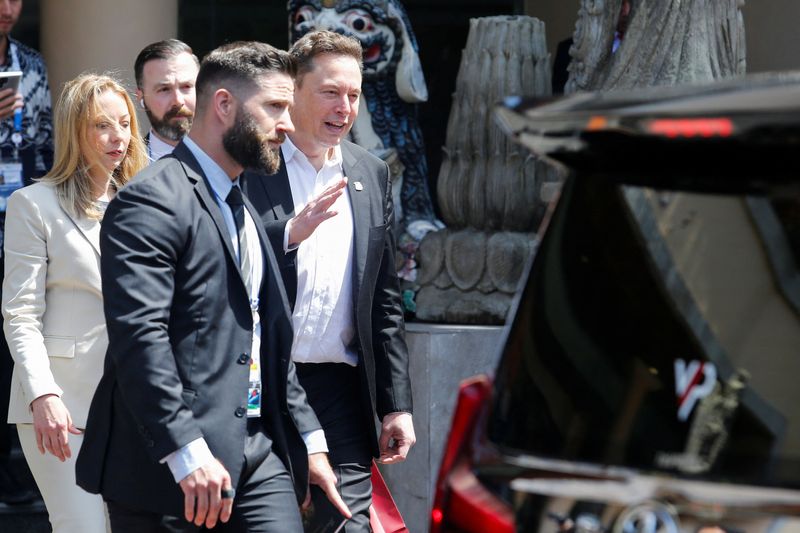By Tom Hals
WILMINGTON, Delaware (Reuters) - The legal team that voided Elon Musk's record Tesla (NASDAQ:TSLA) pay package deserves a tiny fraction of the $5.6 billion legal fee they requested because their lawsuit provided almost no benefit for the company, the electric automaker argued in court papers on Friday.
Tesla said the legal team for Richard Tornetta, the shareholder whose lawsuit led to a January ruling voiding Musk's $56 billion pay package, should be paid as little as $13.6 million for their work, which began with a 2018 complaint.
Musk's remuneration is the most ever granted to a CEO in the U.S. at least.
Tesla also said if shareholders vote to ratify the voided pay package at the company's annual meeting next week, then the lawsuit's main benefit was to have informed investors of the flawed negotiation process for awarding pay so they could then correct it with a new vote.
"Importantly, undisputed market evidence confirms (the) plaintiff achieved little to no discernible value for Tesla or its stockholders," Tesla said in its filing with the Delaware Court of Chancery.
The shareholder's legal team comprised three law firms, Bernstein Litowitz Berger & Grossmann and Friedman Oster & Tejtel, both based in New York, and Andrews & Springer of Wilmington, Delaware.
The objection to the legal fee comes as the company tries to rally shareholders to back a proposal to restore Musk's pay package.
Tesla is also asking shareholders to approve moving the company's legal home to Texas, where it has its headquarters, from Delaware, which Musk lambasted after the pay ruling.
Chancellor Kathaleen McCormick (NYSE:MKC) voided the 2018 pay deal in January because she found after a trial that Musk improperly dominated the Tesla board negotiations to arrange the $56 billion compensation, which she described as "unfathomable."
The legal team that brought the case asked McCormick to order Tesla to pay them with about 29 million Tesla shares as a portion of the 266 million shares that they said Musk would return to Tesla as a result of his pay being voided.
Tesla argued that the ruling did not result in the return of any stock to the company because Musk never exercised any of the stock options, the form of payment underlying his compensation.

Hundreds of Tesla shareholders have written to the company or to the court to object to the legal fee request.
One shareholder with 19,000 shares, Amy Steffens, filed a formal objection to the fee request and is represented by the Munger Tolles & Olson law firm.